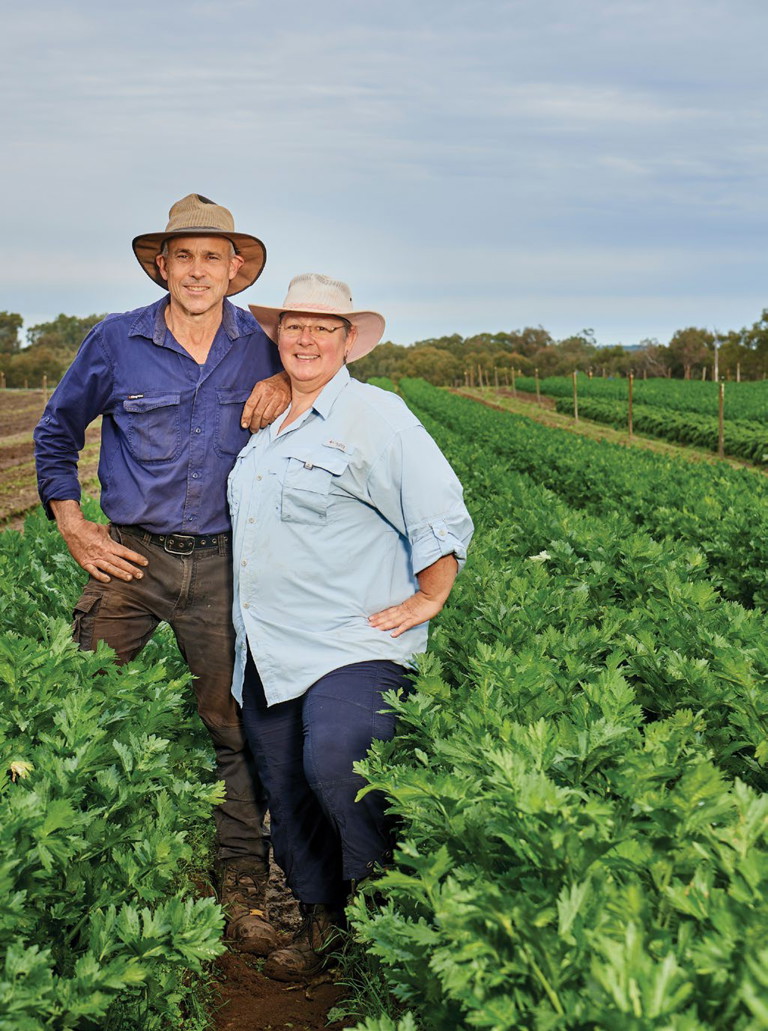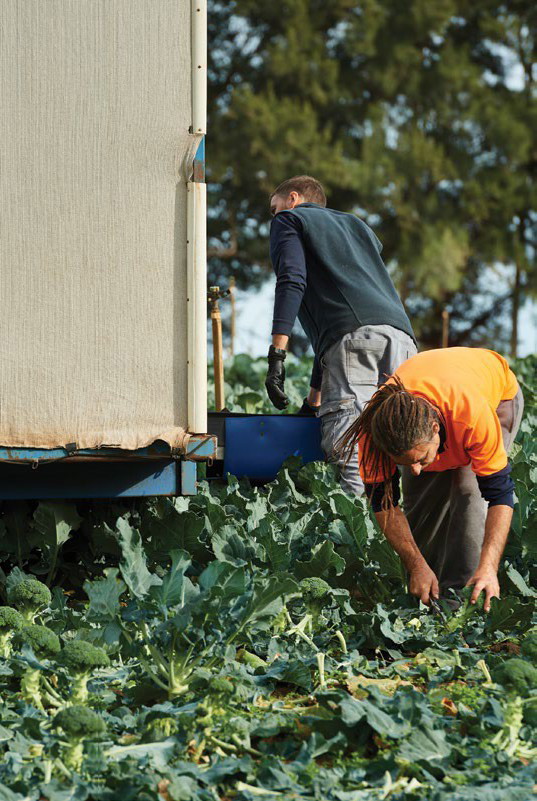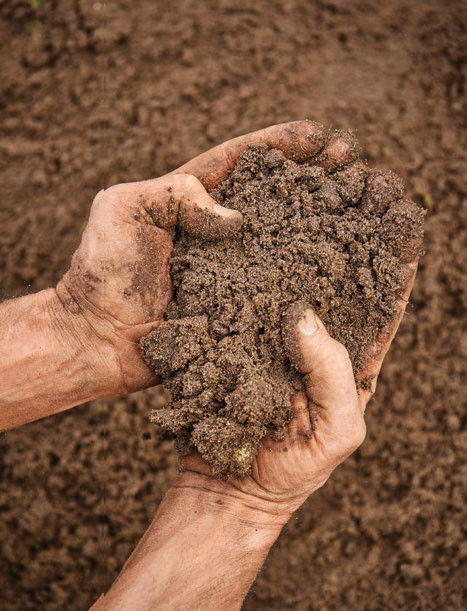GROWER profile

Produce PIVOT
Unhappy with returns
on their stonefruit,
these growers switched
to organic
vegetables
and went direct.
Words Anna Flanders
Photography Frances Andrijich
Noel and Lynda: the
couple switched from
mining to vegetable
growing for a better
life together.
WHEN Lynda Harding and her husband Noel decided to step out of mining and into farming, they bought a stonefruit orchard near Gingin in 2003. Buying just before harvest and thrown straight into picking and selling, it was a learning experience from the ground up – literally. Today they are Gingin Organics – an organic vegetable grower supplying Woolworths direct as part of the major retailer’s Macro Organic range of fresh food.
“By 2012, we were in the market system, however found the irregular payments difficult to work with and opportunities for organic produce limited. We decided to knock on the doors of the big supermarkets to see who wanted organic produce. Woolworths showed interest and by working with them became direct vendors in July 2014,” says Lynda.
So how did they get there? Between 2003 and 2007 Lynda and Noel took time to work out how to improve the business. They had been concerned with the use of chemicals and the opportunities available. Wanting a market edge, they transitioned to a certified organic stonefruit orchard between 2007 and 2010.
“We found the market wasn’t big enough for our volume. We identified a need for a local supply of organic vegetables, which has led us to where we are today,” explains Lynda.

Workers Cain and Marcos cut the broccoli by hand and load onto a conveyor belt that moves produce onto a trailer where another worker places it into bins.

Lynda says they could have chosen a property with better soil, but they do have good water... The climate is Mediterranean, but shifting to more subtropical.
The farm now grows celery, kale, broccoli and cos lettuce. And the couple have come a long way from their former lives in mining: Lynda in environmental audit and social management systems and Noel in overseas mine maintenance supervisory roles.
“When we started, we were only supplying a few trays of lettuce,” says Noel. “We have grown different vegetables, but we now concentrate on core lines that grow and sell all year. Broccoli, celery and kale take about eight-10 weeks to grow, and cos takes six to eight weeks. We plant and harvest weekly”.
Their land is a free-draining sandy soil that they “are constantly trying to improve”. Lynda says they could have chosen a property with better soil, but they do have good water and the farm being somewhat isolated, has been an advantage. They combat the soil issue with cover cropping, biological inputs, compost teas and a permanent bed system.
“We don’t rotary hoe down deep anymore,” explains Noel. “It’s very shallow. Everything below around 5cm from the surface remains undisturbed. We have found that by doing that we have better water retention and need fewer nutrient inputs because there’s a carbon source underneath that’s capturing the nutrients. Through this method, we have also had less disease and less weed pressure.”
The couple have also changed up their harvesting methods, with Noel manufacturing two purposebuilt harvest trailers for picking and updating their pack shed machinery to save on labour. Broccoli, kale and celery is picked by hand, put on a conveyor belt and run up onto the trailer where it’s packed into bins. Cos is picked with a purpose-built, single-row harvester, which cuts and conveys the lettuce onto the trailer and into bins. The lettuce harvester will bring in about 6000-8000 lettuce per hour with three crew members. Both initiatives have cut back labour needs in the field by six workers, and efficiencies in the pack shed have also been successful.
“ ... we have better water retention and need fewer nutrient inputs... ”
So, does this dynamic couple have any tips to pass on to others? “There’s always room for organic growers. People just have to understand it takes time. You’ve got to spend time learning about organic management. You will also have losses you might not have had in conventional growing. We’re happy to support the industry and help people, but it’s not a quick buck. However, it is rewarding because it has challenges and you need to find solutions.”
FOR MORE INFORMATION
Reach out to Lynda and Noel at ginginorganics.com.au.